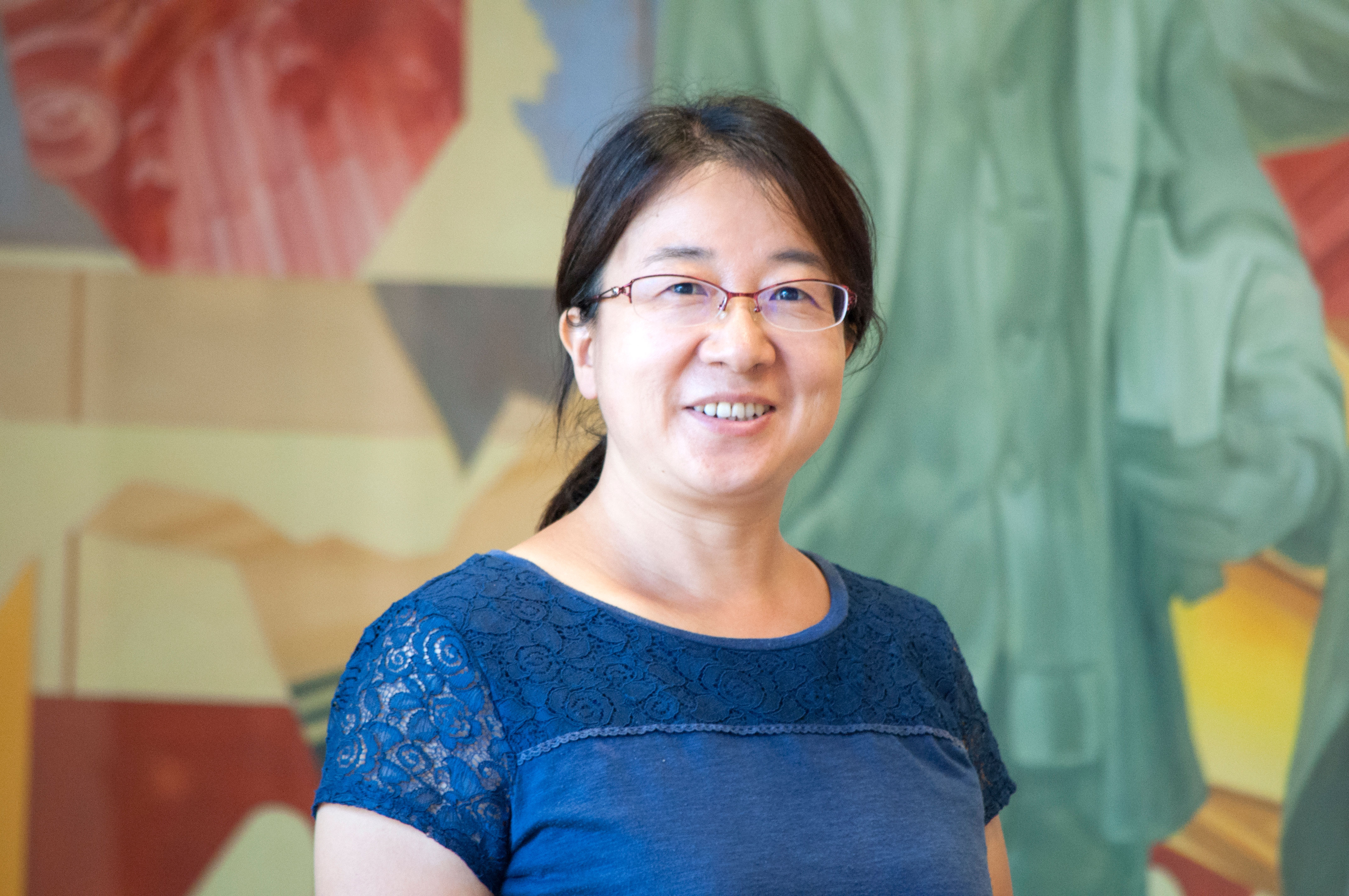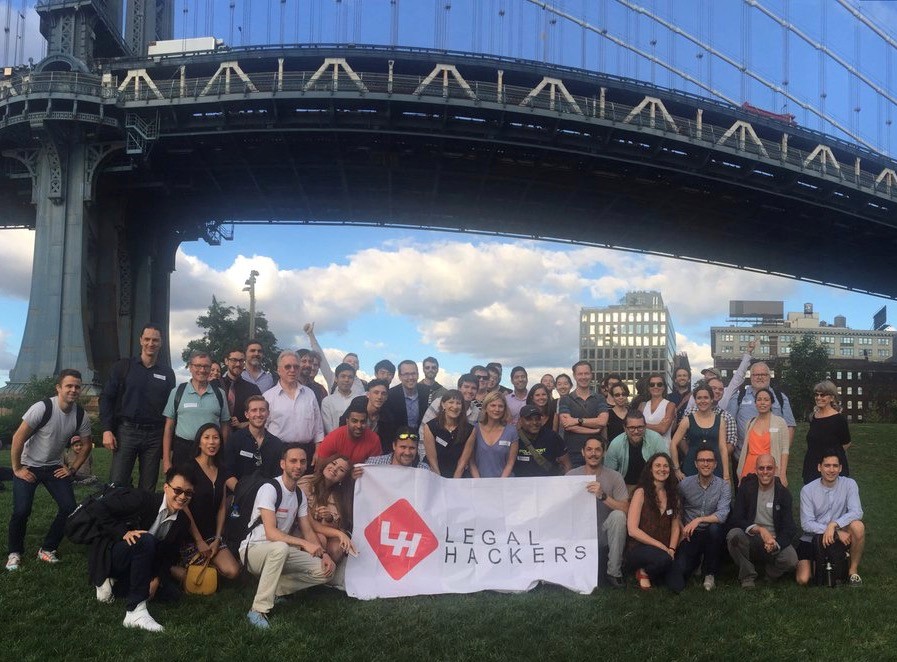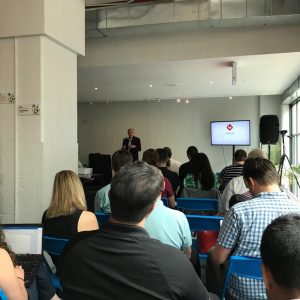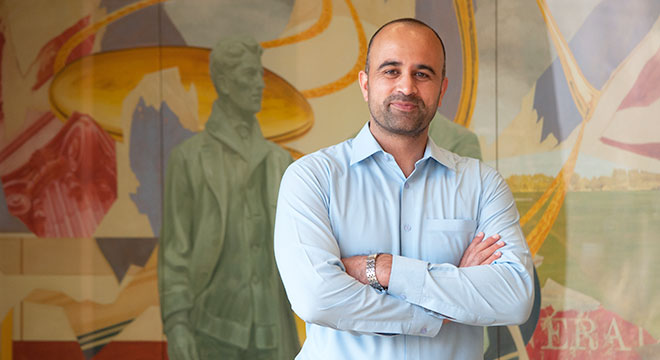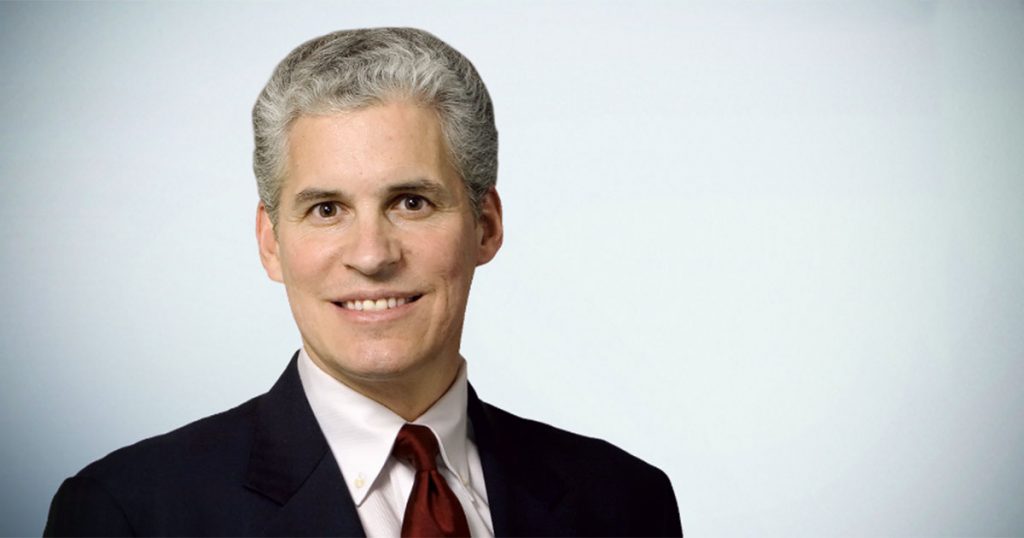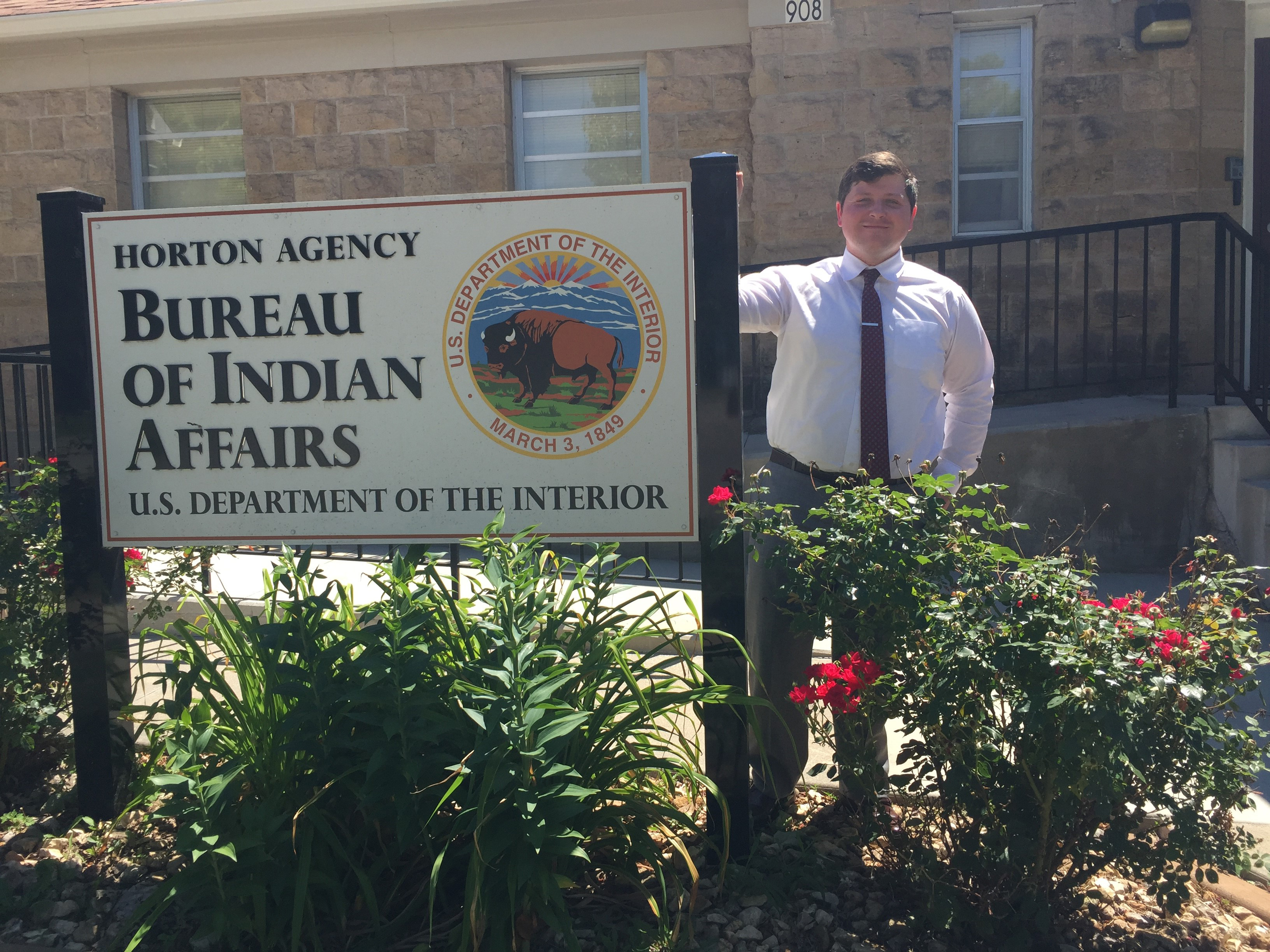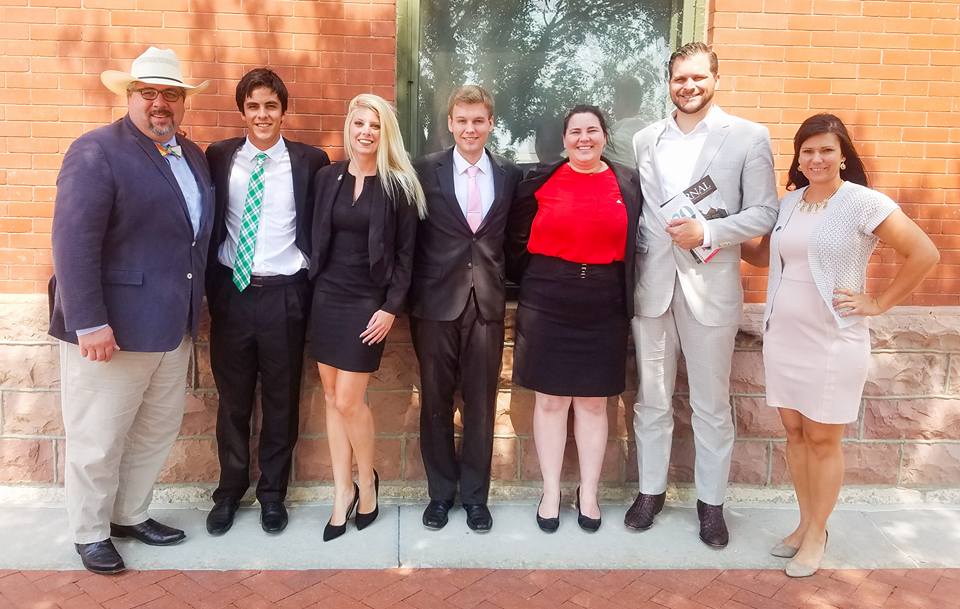
Miranda Clark-Ulrich, third from left, attended the 2017 Southwest Kansas Bar Association meeting in Dodge City with Assistant Dean of Career Services Arturo Thompson, far left, and fellow KU Law students.
Over my birthday weekend early this September, I gathered with attorneys and fellow students to see what the life as a Jayhawk lawyer in southwest Kansas looks like, and I have to say, it wasn’t half bad. To further describe my experience, I decided to provide the top 10 reasons to go to the Southwest Kansas Bar Association annual meeting during your time at KU Law.
- First and foremost, pecan-coated bacon. I’m serious, that stuff was too delicious. We were able to enjoy the bacon among many other Western delights, including mountain oysters, at the party that was thrown for our KU Law group and the Washburn Law students. I’m a total foodie, so they basically won my heart from the start with the meal.
- Now back to this party. The trip is one night, but they certainly make that a night to remember. After a panel of attorneys answered our questions, we were taught the merengue by a professional dance coach so that we could properly get our groove on later that night. A band, beer, great conversation, and as previously stated, food, was provided for the students for the purpose of giving us the opportunity to meet attorneys casually.
- At this party we were also able to mingle with Washburn Law students and created friendships with some of them. Comparing law school experiences was intriguing, to say the least. After the party, several of us made plans to meet up again at the Boot Hill Casino to continue the evening, where our connections were made stronger.
- Not only were attorneys and other law students at the party, there were several judges, including Kansas Court of Appeals judges. I was having what was probably too casual of a conversation and asked the person I was speaking with what they do, and learned they were on the Kansas Court of Appeals. Umm, oops! As it turns out, one of them is from my hometown, so I was able to make a strong connection with her. In another instance, I was discussing a case that my boss and I presented in front of the Kansas Court of Appeals this past summer, and he was one of the judges on the case. There was ample opportunity to make connections and meet distinguished people from diverse areas of the law. I had no expectation of that happening when I signed up for the trip.
- After enjoying the company of people I hope to be like when I grow up, we hit the Boot Hill Casino. We probably stayed way too late for having interviews the next day, but boy was it a good time. No one lost hardly anything, and most people profited at least something. The Chiefs beat the Patriots, and I “mastered” blackjack.
- The main purpose of the trip was interviewing with potential employers the next day. There were seven interviewers and roughly 13 students between KU and Washburn. Each interview was 10 minutes long, and then we rotated. I thoroughly enjoyed this interview process because it was casual, low-pressure and helped students make quick connections or figure out if a particular opportunity was a good fit. The start of each interview usually included the interviewer telling me what it is they do and asking if I am interested in working in that capacity. Several of them were transactional, so that was a quick no, but that did not conclude the interview. We then knew that I would likely never work for them and spent the rest of the time discussing what it is like to work in southwest Kansas or experiences that they thought I might learn from. The overall experience was productive, and I made about four contacts that I could see going somewhere.
- Who doesn’t love a good road trip? I’ve always loved a good drive, and Lawrence to Dodge City is definitely a stretch. During our 10 total hours in the car, I got to better know not only the fellow law students who enjoyed the trip, but also the professors who drove. My van was driven by Professor Suzanne Valdez, and I would consider her to be a strong contact after having hours of discussion. We also stopped and ate going each way, and I already mentioned how I am about food. Moral of the story: Don’t let the long drive hold you back from attending this trip. We made good use of the time and enjoyed every minute of it.
- For those of you readers from eastern Kansas, or really anywhere besides western Kansas, I think it would be worth your while to check out the other side of the state. Life is quite different from life in good old Larryville, but I certainly wouldn’t say for the worse. People are incredibly friendly, there are things to do (contrary to popular belief), and it’s so humble. I’m not saying everyone should go live that life, but seeing what else is out there is important because, who knows? You might totally change your path.
- Not only are people who work in wansas attorneys, they are also major community influencers and leaders. They hold powerful positions and make actual change happen for their towns. People look up to small-town attorneys in a different way than attorneys in larger cities.
- Lastly, there are so many job opportunities in all different areas of law, or a combination of several of them. And they pay well! One huge benefit I see to working in western Kansas is that most attorneys work way fewer hours, have a personal life and get paid relatively similar to attorneys working in larger firms. Another great benefit is that so many are hiring or wanting to pass their firm on to the next attorney. People often do general practice rather than focusing on one specific area, so if that’s something you’re into, this could be a good fit. After working in western Kansas all summer, I can see the need for attorneys across that part of the state. There are some great opportunities just waiting to be snagged.
— Miranda Clark-Ulrich is a 2L from Russell, Kansas.
